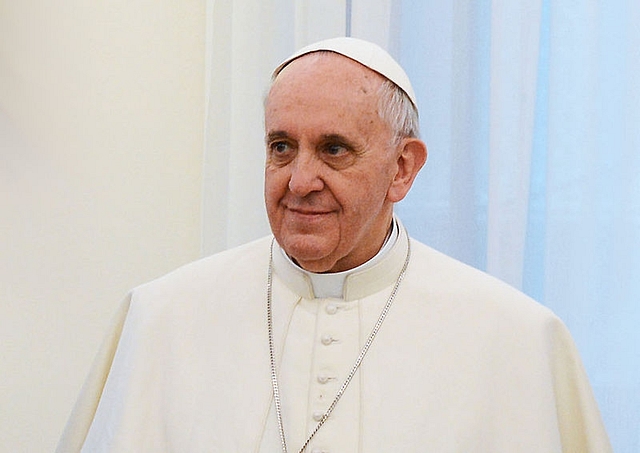
The Laudato Si Hijacking
I admit, I have been unable to finish reading the big papal encyclical on the environment and climate change. So if the tone or argument changes radically part-way through, forgive me for getting it wrong.
But it seems to me, from what reading I did, that Ross Douthat and Damon Linker have it about right. Indeed, I would go further than either in my criticism.
To my reading, the encyclical starts with a fairy tale. Once upon a time, human beings lived in relative harmony with the environment, because we understood our place within creation. But with the advent of modernity, we have lost sight of that place, both in terms of our proper humility and in terms of our proper responsibility for good stewardship. And the devastating consequences for humanity and the non-human world are all around us. Modernity cannot really be repaired from within; it must be re-founded on a proper moral basis, such that the fruits of the earth are properly shared and exploitation of both the human and non-human world is no longer the basis of our world economy.
I call this a fairy tale because there’s no evidence offered that the pre-modern history is at all true. That is to say, there’s no evidence that medieval Europeans, or the cultures of Africa or the Americas before the arrival of Europeans, avoided exploiting their environment to the best of their ability. And this is to say nothing of the cultures of Asia, from China to India to the Fertile Crescent, which were much more systematic and effective at maximizing their exploitation of the local environment, and which consequently lived closer to the Malthusian edge.
What changed, fundamentally, with modernity was the scope of human power. Human beings had previously only been able to exceed the carrying capacity of specific geographic areas, and when those areas were destroyed they could move on to new areas. That’s what human beings did in the first cradle of civilization – Mesopotamia – when long-irrigated areas grew too saline to support agriculture. Over the course of the 19th and 20th centuries, though, human beings acquired the power to more and more fully exploit the resources of the entire planet – and the global human population exploded to take advantage of this new abundance. As a consequence, we are now arguably the largest single factor impacting the global ecosystem, responsible, by some measures, for the disposition of 25% to 40% of the entire terrestrial biomass.
Over that same period of time, we as a species have gotten better, not worse, at managing our relationship with the environment – more cognizant, not less, of the impact we are having on the planet. The environmental movement is now over a century old, and can claim some very substantial successes, and modern science remains the only actual tool we have for evaluating the impact of humanity’s activities on the ecosystem, a precondition to doing anything to alter that impact. The problem is that we are not getting better fast enough. The damage we are doing is escalating faster than our efforts to restrain that damage. It may in fact be escalating fast enough to usher in a global Malthusian catastrophe.
So there’s a good argument for what Douthat calls the “catastrophist” case – just as there is a good counter-argument for the “dynamist” position. But if there’s an ecological case for a reversion to pre-modern modes of production and distribution, that case needs to be made in ecological – and economic – terms, not in spiritual terms. After all, it could well be that such modes are more spiritually wholesome for human beings, and also more wholesome for the environment – but that they can only be implemented by killing off 85% of humanity, and then keeping the population suppressed by some means (presumably either through coercion or through the simple operation of scarcity). That, in fact, would be my own presumption before any evidence is presented, because the sevenfold expansion of the planetary human population over the past two centuries happened as a consequence of the adoption of modern modes of production and distribution, and I would assume – again, until evidence was presented to the contrary – that there was a causal relationship operative.
And even if that kind of radical restructuring is the goal, the only way to get from here to there – from an unsustainable economic system to a sustainable one – is through significant and conscious adjustments to human activity all around the world. How exactly are these to be implemented without recourse to some combination of technocratic direction or spontaneous response to the price mechanism? The encyclical pays lip-service to the importance of scientific and technical knowledge, but implicitly disdains politics as too infected with interest. The core assumption seems to be that if our hearts were changed, then all the organizational difficulties attendant on radically changing the way our civilization works would melt away. That may be – but should we bet the planet on it?
That effort might or might not pay off in terms of convincing people worried about the environment to take Catholicism seriously, or in terms of convincing Catholics to take environmentalism seriously. But qua reasoning, forgive me if I find it, well, Jesuitical. And I seriously question whether that kind of reasoning is the best way to respond to the concrete challenges of humanity’s burgeoning impact on the natural world.
This article was first published in the ‘The American Conservative’ on June 23, 2015 and has been reproduced here with permission.